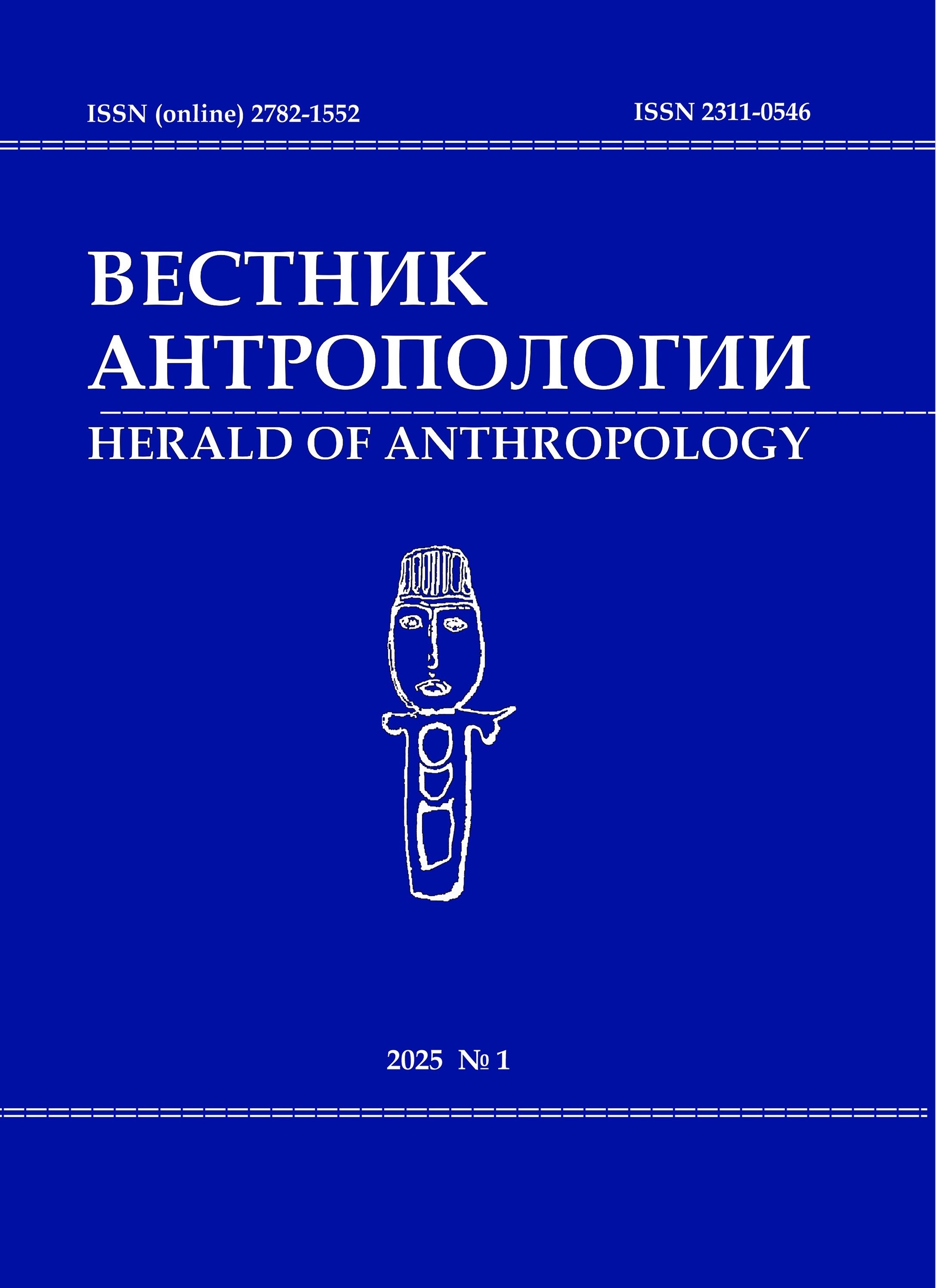85 Years of the Department of Ethnology of Moscow University: Institutionalization, Growth and Professional Maturity (1939–1986)
DOI: 10.33876/2311-0546/2025-1/7-21
Keywords:
Moscow University, School of History, Department of Ethnology, institutionalization of ethnography as a university disciplineAbstract
The article examines the history of the University Department of Ethnology in the Soviet period in disciplinary and general historical contexts. These contexts allow us to understand the logic of the formation and development of this academic discipline at the university. Of the 85 years of ethnology's existence at Moscow University, almost 60 years have fallen in the Soviet era. It was during the Soviet period that fundamental science in our country, including ethnography, flourished. But along with achievements, advantages, and preferences, it also underwent losses, embarrassing restrictions, and strict control. Nevertheless, in the post-war period, ethnography was institutionalized within the university walls, acquired the stable status of an independent discipline incorporated into the structure of the Faculty of History, and developed a basic concept of professional education. In the “middle” and “late” Soviet periods, the state and science relations followed a paternalistic pattern. Still, the influence of the state's paternalistic policy on the development of university ethnography was clearly positive. The institutionalization of ethnography as an academic discipline, which began in 1939 at Moscow University, acquired a nationwide scope in the 1960s and 1970s: ethnography as a compulsory subject became an integral part of historical education in the largest universities of the Soviet Union. The department acquired the status of a leading department in the system of professional education, had significant personnel potential, carried out educational training on an ever-increasing scale, and demonstrated considerable research activity. The indicators of the department’s maturity were a clear corporate identity, fundamental research approaches, thoroughness of academic training, robust conservatism and, at the same time, openness to the challenges of the time, the stable transmission of tradition, and the dominant scientific ethos of the department with its humanistic approach.





















